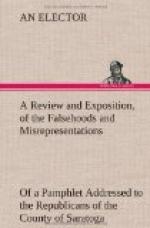The British Empire is founded not upon the British Bible or the British dreadnought but upon Ireland. The empire that began upon an island, ravaged, sacked and plundered shall end on an island, “which whether it proceed from the very genius of the soil, or the influence of the stars, or that Almighty God hath not yet appointed the time of her reformation, or that He reserveth her in this unquiet state still for some secret scourge which shall by her come unto England, it is hard to be known but yet much to be feared.” Thus Edmund Spenser 340 years ago, whose muse drew profit from an Irish estate (one of the first fruits of empire) and who being a poet had imagination to perceive that a day of payment must some day be called and that the first robbed might be the first to repay. The Empire founded on Ireland by Henry and Elizabeth Tudor has expanded into mighty things. England deprived of Ireland resumes her natural proportions, those of a powerful kingdom. Still possessing Ireland she is always an empire. For just as Great Britain bars the gateways of northern and west central Europe, to hold up at will the trade and block the ports of every coast from the Baltic to the Bay of Biscay, so Ireland stands between Britain and the greater seas of the west and blocks for her the highways of the ocean. An Ireland strong, independent and self-contained, a member of the European family of nations, restored to her kindred, would be the surest guarantee for the healthy development of European interests in those regions whence they are to-day excluded by the anti-European policy of England.
The relation of Ireland to Great Britain has been in no wise understood on the continent. The policy of England has been for centuries to conceal the true source of her supplies and to prevent an audit of transactions with the remoter island. As long ago as the reign of Elizabeth Tudor this shutting off of Ireland from contact with Europe was a settled point of English policy. The three “German Earls” with letters from the Queen who visited Dublin in 1572 were prevented by the Lord Deputy from seeing for themselves anything beyond the walls of the city.[2]
[Footnote 2: This time-honoured British precept—that foreigners should not see for themselves the workings of English rule in Ireland—finds frequent expression in the Irish State Papers. In a letter from Dublin Castle of August, 1572, from the Lord Deputy Fitzwilliam to Burghley Elizabeth’s chief Minister, we are told that the “three German Earls” with “their conductor,” Mr. Rogers, have arrived. The Viceroy adds, as his successors have done up to the present day: “According to Your Lordship’s direction they shall travell as little way into the cuntry as I can.”]




